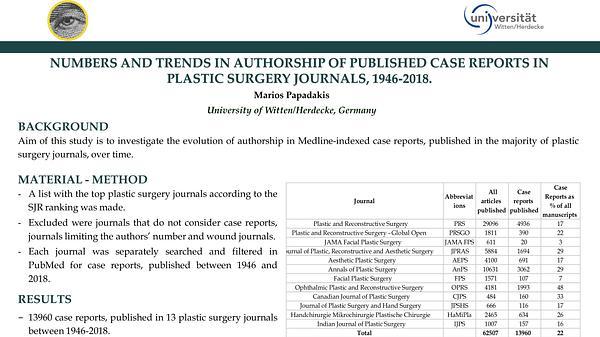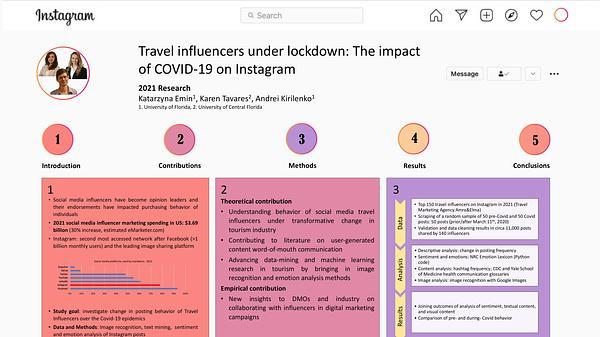Would you like to see your presentation here, made available to a global audience of researchers?
Add your own presentation or have us affordably record your next conference.
Objective Recent studies have found gift authorship to be
one of the most prevalent types of research misbehavior,1,2
and prior researchreported gifting rates between 20% and
50%.3 This study suggests one reason for its popularity may
be due to its association with publications and grant funding,
2 commonly used measures of academic success.
Design Using a convenience sample, surveys were sent to
approximately 118,400 faculty from the top 200 universities
listed in US News & World Report. Respondents self-
reported their academic rank and discipline as well as their
publications, grant funding, and experience with gift
authorship, in the preceding 5 years. They were also asked the
main reason why their most recent gift authorship was given
to a particular individual (ie, the gift recipient). Surveys were
distributed in 2012 to 2014; this study used responses to 11 of
the 28 questions, excluding questions that addressed other
forms of misconduct. Data were analyzed using 2-stage least
squares regression: the first stage explored who was more
likely to add a gift author and the second stage measured the
associations between gift authors, publications, and grant
funding. Responses were then separated into 2 gift recipient
types: administrative roles or nonadministrative colleagues.
The associations of gifting with publications and with grant
funding were then recalculated and compared.
Results The response rate to the survey was 10.4%
(12,317/118,400); this was about what was expected given the
length of the cover email, the length of the survey, and the
potential the emails were directed to junk mail, filtered as
spam, etc. Of the 12,317 responses, incomplete surveys and
responses from unrelated disciplines reduced the usable
sample to 10,689 responses. Of the respondents who
responded to rank and sex questions, 33.2% (3956/11,919)
were female, 21.2% (1878/8838) were assistant professors,
27.4% (2418/8838) were associate professors, 46.2%
(4080/8838) were professors, and the balance consisted of
other ranks. Thirty-five percent (3749/10,698) of respondents
admitted to participating in gift authorship. The results
showed a positive association between the practice of gift
authorship and a scholar’s number of publications and their
research funding (Table 28). Furthermore, adding an
administrator as a gift author was correlated with larger
increases in publications and more grant funding than gifting
nonadministrator colleagues.

Conclusions The association between participating in gift
authorship and academic success in the US, documented in
this study, suggested that it could be difficult for the academy
to reduce the use of gift authorship unless tangible costs and
enforcement of those costs are in place.
References
1. Reisig MD, Holtfreter K, Berzofsky ME. Assessing the
perceived prevalence of research fraud among faculty at
research-intensive universities in the USA. Account Res.
2020;27(7):457-475. doi:10.1080/08989621.2020.1772060
2. Bouter LM, Tijdink J, Axelsen N, Matinson BC, Ter Riet G.
Ranking major and minor research misbehaviors: results
from a survey among participants of four World Conference
on Research Integrity. Res Integ Peer Rev. 2016;1:17.
doi:10.1186/s41073-016-0024-5
3. Elliott KC, Settles IH, Montgomery GM, Brassel ST,
Cheruvelil KS, Soranno PA. Honorary authorship practices in
environmental science teams: structural and cultural factors
and solutions. Account Res. 2017; 24(2):80-98. doi:10.1080/
08989621.2016.1251320
Conflict of Interest Disclosures None reported.
Funding/Support This study was supported by the Office of
Research Integrity through the Department of Health and Human
Services (grant ORIIR130003).
Additional Information The content is that of the authors
and does not necessarily represent the official views of, nor an
endorsement by, the Health Resources and Services Administration,
Department of Health and Human Services, or the US government.


